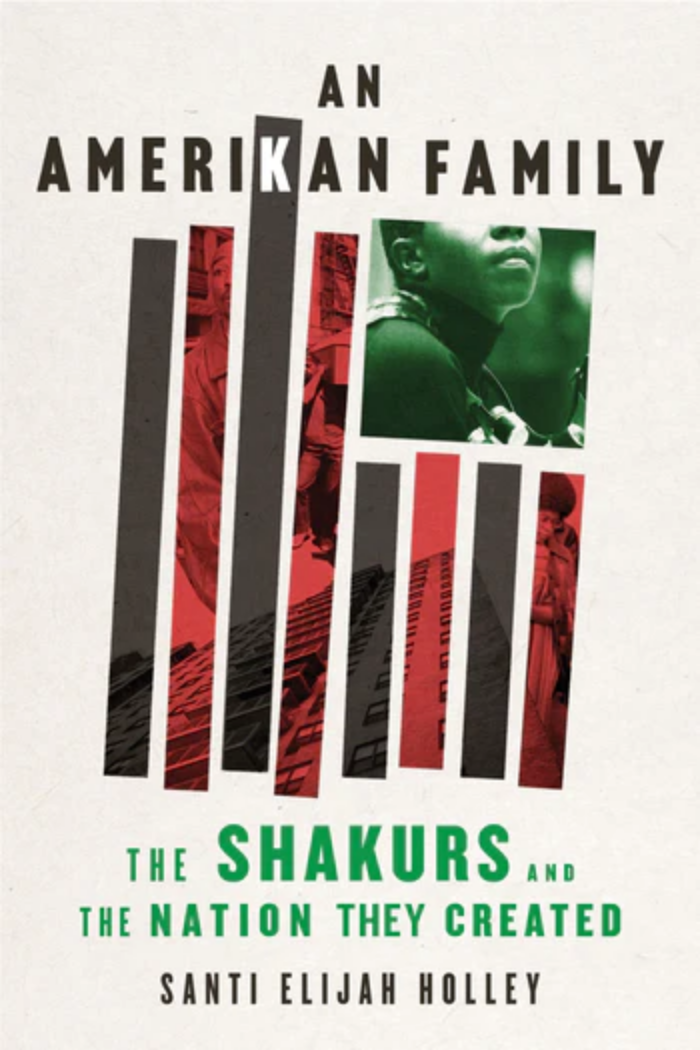In An Amerikan Family: The Shakurs and the Nation They Created, journalist Santi Elijah Holley highlights the often-overlooked contributions of a different “close-knit family, based predominantly in New York City”: the Shakurs. They include Salahdeen Shakur, a leader in the Revolutionary Action Movement, a student-led Black nationalist group; his two sons, Lumumba and Zayd, leaders of the Black Panther Party in Harlem; and revolutionary activists Assata Shakur and Afeni Shakur (the mother of the famous rapper Tupac Shakur).
Unlike other prominent American families, the Shakurs did not have millions of dollars to establish universities and foundations in their name. But what they did create was a powerful legacy of resistance. The Shakurs committed themselves to the cause of Black liberation and challenged white supremacy in the face of intense government repression, through various revolutionary groups, including the Revolutionary Action Movement, the Black Panther Party, and the Black Liberation Army. At every step, they worked to empower Black communities across the nation—often filling in the gaps left open because of the inattention and indifference of American leaders.
While some of the Shakurs (Arabic for “thankful”) were related by blood, others were chosen members of the family. What drew them together was their global political vision and praxis, deeply rooted in a history of resistance to oppression. They maintained a belief in Black radical politics and the possibility that systems of oppression could be overturned. Following the example of Malcolm X, who adopted the last name “X” to signal the loss of his family’s original African name, they chose the last name “Shakur” as a sign of their commitment to the global Black freedom struggle.
An Amerikan Family is above all a beautiful tribute to the Black family. The Black family as an institution has been targeted by the state since the era of slavery and is too regularly an object of derision in American society today. By telling the story of the Shakurs, Holley offers a much-needed corrective by highlighting the strength, resilience, and power of the Black family. And while there have been assorted books about and by individual members of the family, understanding the Shakurs as a group centers on one crucial aspect of the Black family we too often overlook: the significant role it plays as incubator for activism. Indeed, An Amerikan Family provides a window into how political ideas are often developed and circulated within families—sometimes providing the glue that holds them together.
